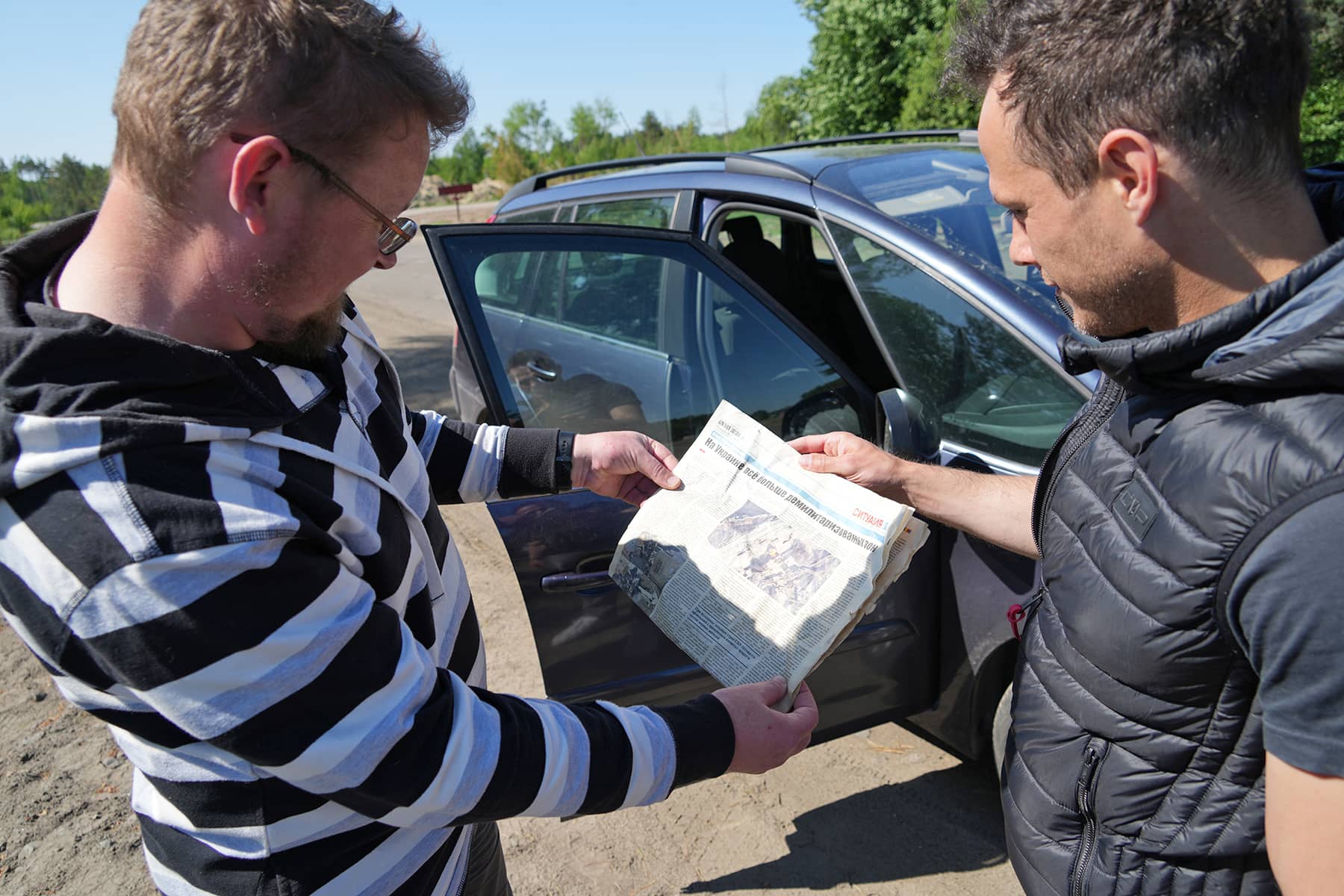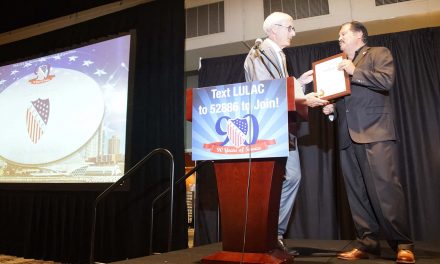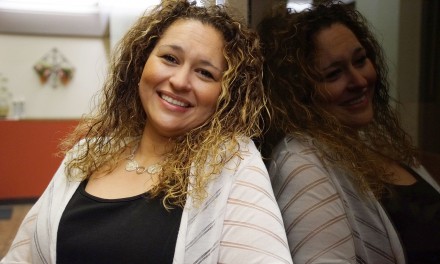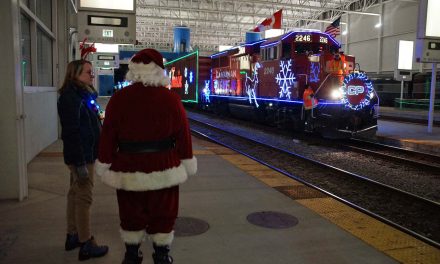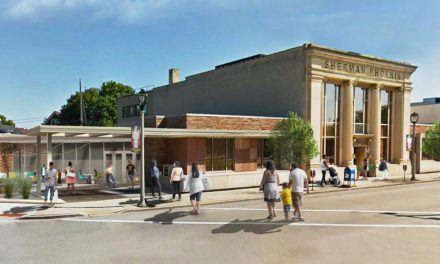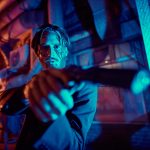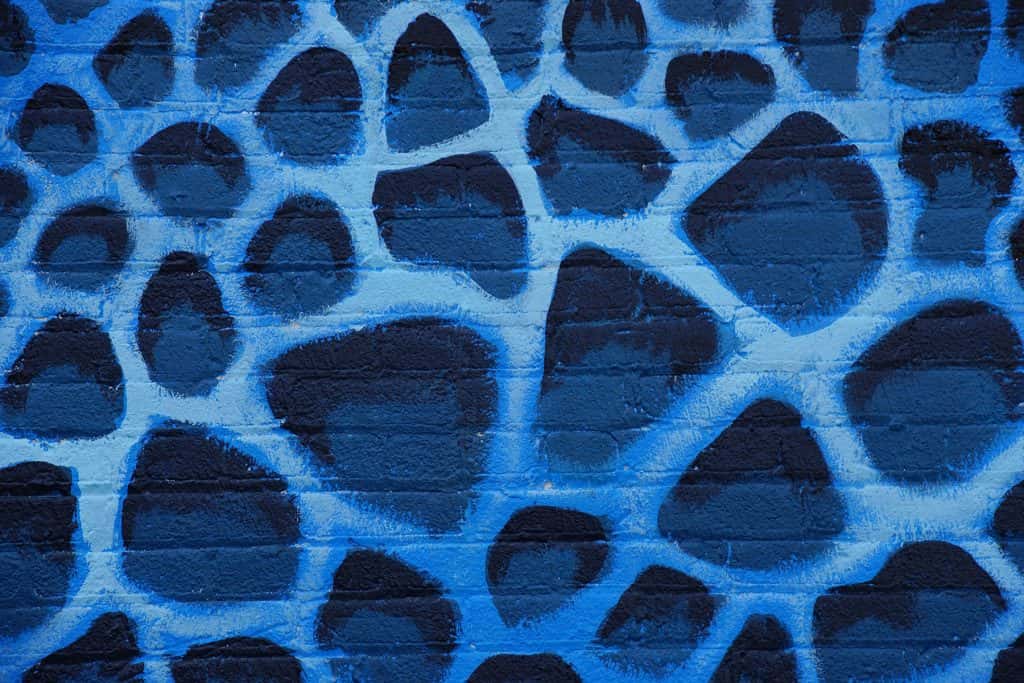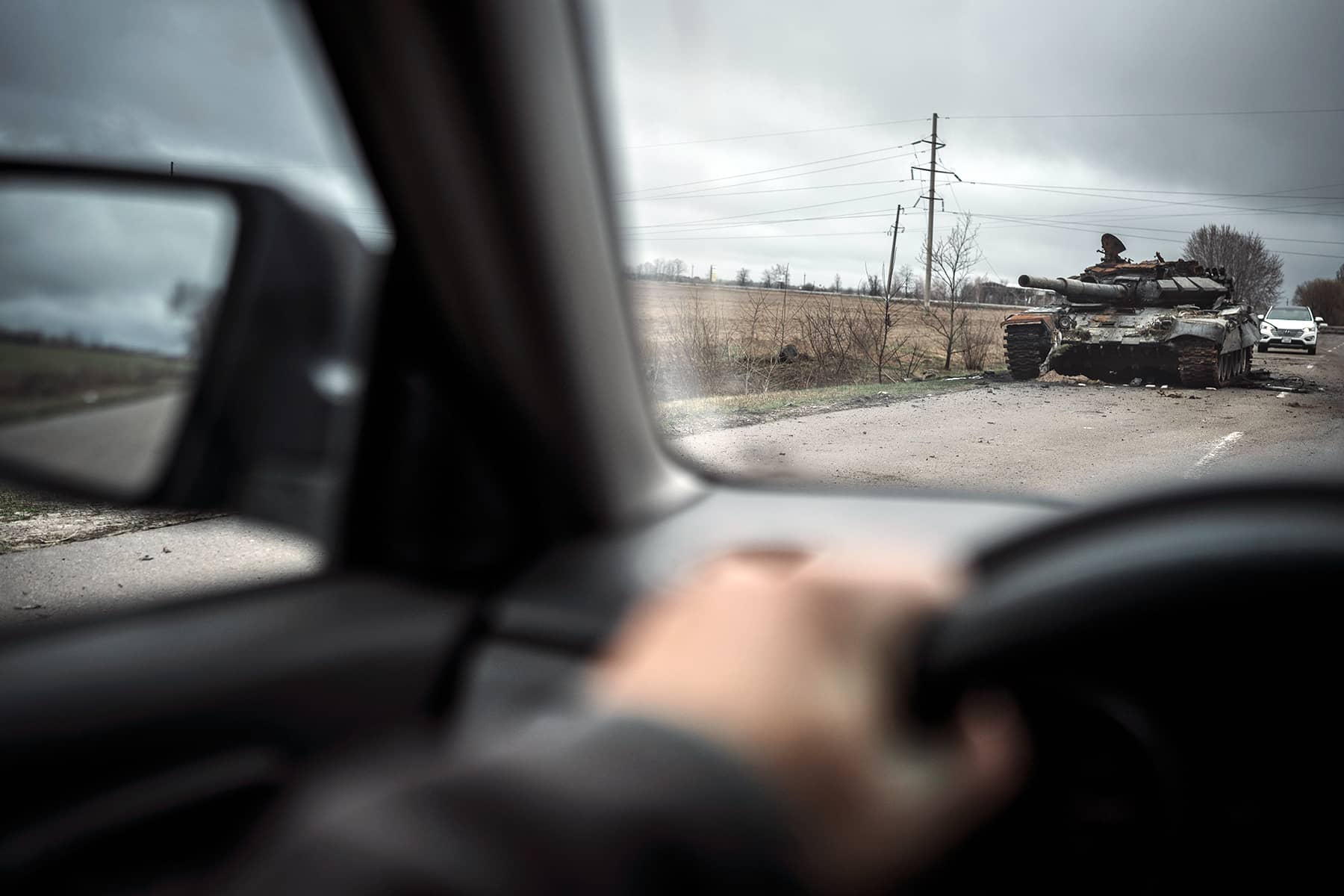
“Without the help of the Milwaukee Independent’s editorial team for the project Reports From Ukraine, I would not have been able to take a single photograph. Very heartfelt thanks is due them. Yaroslav Zdyrko provided security, logistical support, and was our videographer; Oleh Pinta was our Ukrainian and Russian language translator and reporter, and Halyna Salapata supported our work with translation services and coordinated our schedule.” – Lee Matz
For me, the journey began on Sunday, May 22, 2022.
Already awake when the morning alarm clock rang, I turned it off and left my home. Russian attacks on our national oil reserves meant most gas stations in Ukraine were empty, or had lines stretching for miles. When I started my car, I had stockpiled enough gasoline over the past week to cover all the travel for our journey.
I drove from Berezhany to Lviv near the Polish border, to meet photojournalist Lee Matz from “Milwaukee Independent.” It was about a half an hour my friend Oleg, who was also godfather of my two children. We waited for the early bus from Krakow to arrive. The rain had already stopped, and the fresh morning breeze was invigorating.
I felt a little worried, because it was the first time to such an experience. Of course, I had experienced many things for the first time since the beginning of the war. But this was my first concern about a language barrier.
When the bus arrived, many sleepy passengers got out slowly. Then I saw a middle-aged man exit with a burst of energy and carrying camera gear.
“Lee?” I asked.
He offered a smile, a pleasant greeting, and then promptly begged to be directed to the nearest toilet.
Along our drive to the capital city Kyiv, we made further pit stops. Mostly to refuel on coffee – the “Americano” flavor became a running joke, and snacks.
I wondered how a person felt who came to a country at war. Was it fear, interest, or even a personal ego? What I learned from Lee was his professionalism, and dedication to capturing the human condition in pictures.
The kilometers of travel sped by smoothly, due to the company in the car and also thanks to Volodymyr Zelenskyy. Since elected as president of Ukraine, he had overhauled many deteriorating roads across the nation.
The drive offered us a lot of time to have conversations over many subjects. Oleg’s level of English was much higher than mine, thankfully, and we had great exchanges of ideas that filled our mutual understanding. Our talking followed the rhythm of the road, and naturally focused on the darker experiences of war as we past reminders.
At the entrance to Kyiv we saw the remains of burnt Russian tanks and military equipment, surrounded by the ruins of civilian homes. When we stopped along the roadside for Lee to photograph the scene, it was there that I understood the nature of who we were dealing with, not just invaders but inhuman monsters.
By then the rain had started again, and gusts of wind shook our vehicle while driving. In spite of those elements, Lee was always the first out of the car to take photos. The camera was a tool in his hand, and he revolved around it. He took photos at many different angles, adjusting the height to accomplish different visual techniques. At times his professionalism was like a dance, as he floated around the scene taking photos.
And all this was even before we got to the hotel. Lee was documenting his experience at every step, it seemed. Oleg had booked a room for him in a nice hotel in Independence Square, which was basically surrounded by a military compound.
There was a lot of security to get in and out, but the hotel staff knew English and that came as a big relief for his support. Sunday was a travel day, as nothing was scheduled until Monday. But Lee was eager to get out and see Kyiv, so we visited Babin Yar, the Holodomor Museum, and other historic spots in the downtown area.
Lee was simply amazed by all that he saw, and we could feel his respect and honor for our cultural sites. The safety of a foreign journalist during a war was important, and while he was in Ukraine the purpose of my life shifted. I was a bodyguard, a driver, a translator, a videographer, and often a reporter helping to conduct interviews.
When Monday began, I would think of the following days as “days of despair, pain, and hatred” for what the Russian had done. Irpin, Bucha, Borodyanka, Hostomel … there are not enough words to describe what I saw.
I watched Lee delve into the lives of local residents and photograph tragic moments. He embedded with the people who had been working for days to rebuild their city, capturing the views of ordinary citizens who had returned to ruined homes with his lens.
Every night Lee stayed up late cataloging images from that day. He would share key photo with all of us on WhatsApp. We were always by his side, but did not always see things the same way he did. For me, one of the most memorable images were of small children’s eyes. Despite their young age, they had already seen too much cruelty.
It was hard to look at those faces. It is one experience to see events through a TV screen. It is something else very different to see the same things live. You can touch it, hear the sorrow, smell the burnt and destroyed homes where families once lived.
Those few days took an emotional toll on all of us. Lee was there to document the war, but he still wanted to find something positive. He said that only showing the brutality of the Russians was not enough, he had to find the beauty of Ukraine.
So after photographing a destroyed Russian tank column in the rain, Lee used days of sunshine to highlight the parts of my country not overwhelmed by the scars of war.
We traveled to so many locations from Kyiv to Lviv, and even Berezhany. It was mentally and physically draining. But everywhere, all the time, whether Lee was running or walking he was taking pictures.
I thought, “How much energy can be in a man for whom his work is such a joy?”
Lee stayed in our country home the night before leaving Ukraine for Poland, and his flights back to Milwaukee. I asked my wife to cook Ukrainian delicacies such as dumplings, potatoes, and traditional fruit drink. As a token of his gratitude, Lee took a family portrait of us together. I was very grateful.
For the Friday night of his departure from Ukraine, it was raining again. The weather, while not always ideal, had been perfect for our trip. Lee said the rain was not an obstacle, and even though it was a challenge it added more emotion to the environment he photographed.
After meeting as strangers we left as dear friends, with hugs and farewells in the rain, accented by air raid sirens to remind us that Ukraine was still under threat by a madman.
Lee got on the bus, and after driving off sent me a text. Not only in thanks for everything, but also for the travel upgrade. His arrival had been stressful, so I wanted his leaving to be more relaxing. I booked him on a better bus, and purchased a second seat so he could keep his important gear at his side. Because the ticket required a name, his backpack became Lee Jr.
My work was done. I was tired, but thankful. Lee had made a difficult journey to bring stories from Irpin and elsewhere back to Milwaukee. I remain grateful for his journalism, and efforts to show Russia’s genocide of the Ukrainian people to to the world.
No one has a crystal ball for the future. When I celebrated New Years 2022, I could not have imagined the terrible full-scale invasion to follow in two months. After sharing meal across Ukraine with Lee in May, four months later we were having lunch together in downtown Milwaukee.
I have started my new life here with my family in Wisconsin, thanks to President Joe Biden announced “Uniting for Ukraine” program. My children can actually attend school, and go to sleep each night without fear that a suicide drone will target our home. I have started working, and am adjusting to my experience in another country, in the absence of war.
But I miss my homeland, and worry for the safety of my friends and fellow citizens as winter begins. I hope the world will not forget our suffering, and continue to support our desire for freedom. It was America that showed us life without tyranny, a life of independence. I know that Lee will keep sharing our story.
Glory to Ukraine!
Zdyrko Yaroslav
Sеrhіі Mykhаlchuk and Lee Matz
Series: Reports from Ukraine
- Reports from Ukraine: Traveling from Milwaukee to a country at war just to take a vacation from America
- Images from Ukraine: Latino artist travels to Irpin to paint mural inspired by "Echoes of Guernica"
- Images from Ukraine: Irpin residents welcome reissue of Russian Warship Stamp as latest sign of victory
- Stories from Ukraine: Wandering in the ruins of a shattered life after surviving Russia's invasion
- Images from Ukraine: Similar to the Alamo, martyred cities bought precious time to save a nation
- Stories from Ukraine: Tent camp offers shelter for displaced residents until Irpin can rebuild lost homes
- Images from Ukraine: Graveyards of Russian war machines show the scale of Putin's failure to seize Kyiv
- Images from Ukraine: Following the invasion convoy's 40-mile route and exploring an abandoned base
- Stories from Ukraine: Illegal weapons and proof of Russian War Crimes easily seen along streets of Irpin
- Images from Ukraine: How Irpin’s cemetery processed the staggering massacre of its local citizens
- Stories from Ukraine: Healing remains slow as Borodyanka residents recover from occupation
- Images from Ukraine: The deep scars of war remain visibly etched across the landscape of Borodyanka
- Interview with Oleksandr Markushin: Mayor of Irpin and the hero of a Hero City
- A Meeting of Sister Cities: Former and current Mayors of Irpin ask Milwaukee's business community for help
- Stories from Ukraine: Having a shared purpose helped Irpin's leaders protect the city and stop the invaders
- Stories from Ukraine: How Milwaukee helped a bakery feed hungry survivors in Bucha with fresh bread
- Stories from Ukraine: Bucha resident recalls how Russians turned neighborhood into a street of death
- Stories from Ukraine: How a mass grave of executions overshadowed accountability from Bucha’s leadership
- Images from Ukraine: Putin’s attack on Babyn Yar is a painful reminder of the broken vow of “Never Again”
- Images from Ukraine: An unexpected encounter with Jewish history and the bloody legacy of persecution
- Images from Ukraine: Listening to timeless voices of ethnic heritage etched in stone at Lychakiv Cemetery
- Images from Ukraine: The experience of attending a military funeral in Kyiv while children died in Uvalde
- Images from Ukraine: Stepping out of the fog of war to see the beauty of faith in ancient places of worship
- Images from Ukraine: The cities of Kyiv and Lviv were divided by history but remain united in identity
- Stories from Ukraine: Anya Nakonechna shares why the Lviv Opera is a symbol of her nation’s culture
- Images from Ukraine: A folk village where visitors can experience the life of past generations
- Images from Ukraine: Signs of renewal sprout from under Irpin’s rubble as city looks to the future

